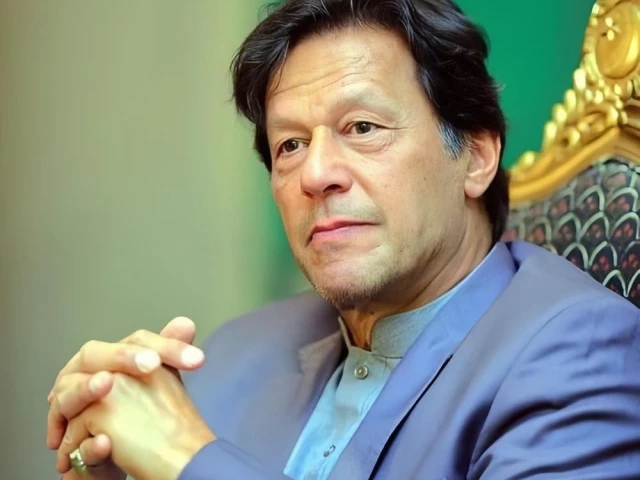Imran writes, but who's listening?
Experts believe PTI founder's letters may further hinder reconciliation

Before the digital age, the epistolary history is full of personal and open letters, serving as a crucial window into one's life and socio-political events of that era.
From greatest Urdu poet Mirza Ghalib to foremost Muslim leader Bahadur Yar Jung and from social rights activist Martin Luther King, Jr to South Africa former president Nelson Mandela, their letters conveyed all sorts of information from mundane to the life-changing and highlighted their views on social and political issues, injustice and needs for reforms.
Some of these letters are still considered the best or the most influential ones as they reveal who the writers were and what they were going through at that time. Fast forward to the present, the past week in Pakistan can fairly be called "letter week" as incarcerated former premier Imran Khan revived the old tradition by writing back-to-back open letters to Chief of Army Staff (COAS) Gen Syed Asim Munir.
While highlighting Imran's concerns about alleged election manipulation, these letters accused the establishment of enabling "corrupt" politicians to return to power and warned of growing public resentment against the institution. Khan also described the harsh conditions of his imprisonment, including solitary confinement and restricted access to legal counsel, among other things.
However, the response from the military and government was dismissive. The army chief stated that he had neither received nor intended to read any letter from Khan, emphasizing that any such communication would be forwarded to Prime Minister Shehbaz Sharif instead.
Meanwhile, PM's political adviser Rana Sanaullah reportedly accused Khan of using the letters as a political tool to spread anti-military propaganda. The PM aide argued that rather than seeking dialogue, Khan was attempting to manipulate public perception against the army by publicizing the letters.
Some political experts view these letters as a strategic move to keep his political narrative alive despite being in jail. By addressing the COAS directly, they argue, Khan has tried to highlight the military's influence in politics while rallying his supporters.
However, they note, the military's dismissive response highlights its unwillingness to engage with Khan on political matters, at least for now, and might further "annoy the chief".
"These letters are nothing but a communication strategy and low-risk undertaking to stay relevant in the game," the president of the Pakistan Institute of Legislative Development and Transparency (PILDAT), Ahmed Bilal Mehboob, said. "The contents of the letters are such that these will further annoy the Chief so reconciliation becomes even more difficult, if at all there was a chance," he added.
In response to several questions about the intent and impact, Mehboob said that "these letters are also intended to send a message to military personnel that look, I have repeatedly tried to reconcile."
On the army chief's response, he said, "I think the chief's reaction to the question about the letters could have been better. A simple 'no comments' would have sufficed."
Professor Tahir Naeem Malik of NUML University opined that Imran's letters show his repeated stance that he only wishes to talk to the real powerful stakeholdera desire that is often criticized by the government ministers.
After the failure of the government-PTI talks, the professor said, Khan was trying to openly set his narrative and to put pressure on the powerful stakeholders to meet his demands.
Through the letters, Professor Malik said, Khan has also tried to highlight the difficulties that he has faced in jail. "By writing letters, he [Imran] wants to document his case and reset his narrative."
Commenting on the army chief's response, Malik said that Khan wrote open letters to the COAS so that "society at-large could be involved in his opinion."
Malik concluded that Khan has not only tried to put pressure on powerful stakeholders but also tried to build and present his case before the people. However, he seconded Mehboob by saying that Khan seems to have further annoyed the army chief by making the letters open. "It caused displeasure," he said.
Some political commentators also see Khan's letters as a sign of desperation and an attempt to mend ties with the establishment, while others interpret them as a calculated effort to expose the military's alleged role in political engineering and influence on the political chessboard.



















COMMENTS
Comments are moderated and generally will be posted if they are on-topic and not abusive.
For more information, please see our Comments FAQ